Triskell Interactive and Dotemu bring the classic city-builder back to life this week with the launch of Pharaoh: A New Era, featuring enough new hotness to feel worthwhile.
Over 20 years since it released, the classic city-builder game, Pharaoh, is finding new life thanks to a full HD remake with Pharaoh: A New Era. Originally launched in 1999, with an expansion to follow in 2000, Pharaoh takes a slightly different approach to the city-building genre. The basics were largely the same, but it’s singular focus on the expansive Egyptian history, and it’s emphasis on historical accuracy, set it apart from similar titles.
Pharaoh: A New Era
Developer: Triskell Interactive, Dotemu
Platforms: PC
Release Date: February 15, 2023
Despite garnering critical acclaim and general success with players when it launched, and spawning an equally successful expansion pack, Pharaoh just kinda…died. There were no sequels released or franchise to build upon. Instead it was a game, very much of its time, and became something of a “cult classic” in later years due to this. To be fair, PC strategy games in general were struggling around this period of time (much like the big RTS lull of the period). Unless a game was part of a major series already (SimCity, Civilization, etc), it tended to fall by the wayside.
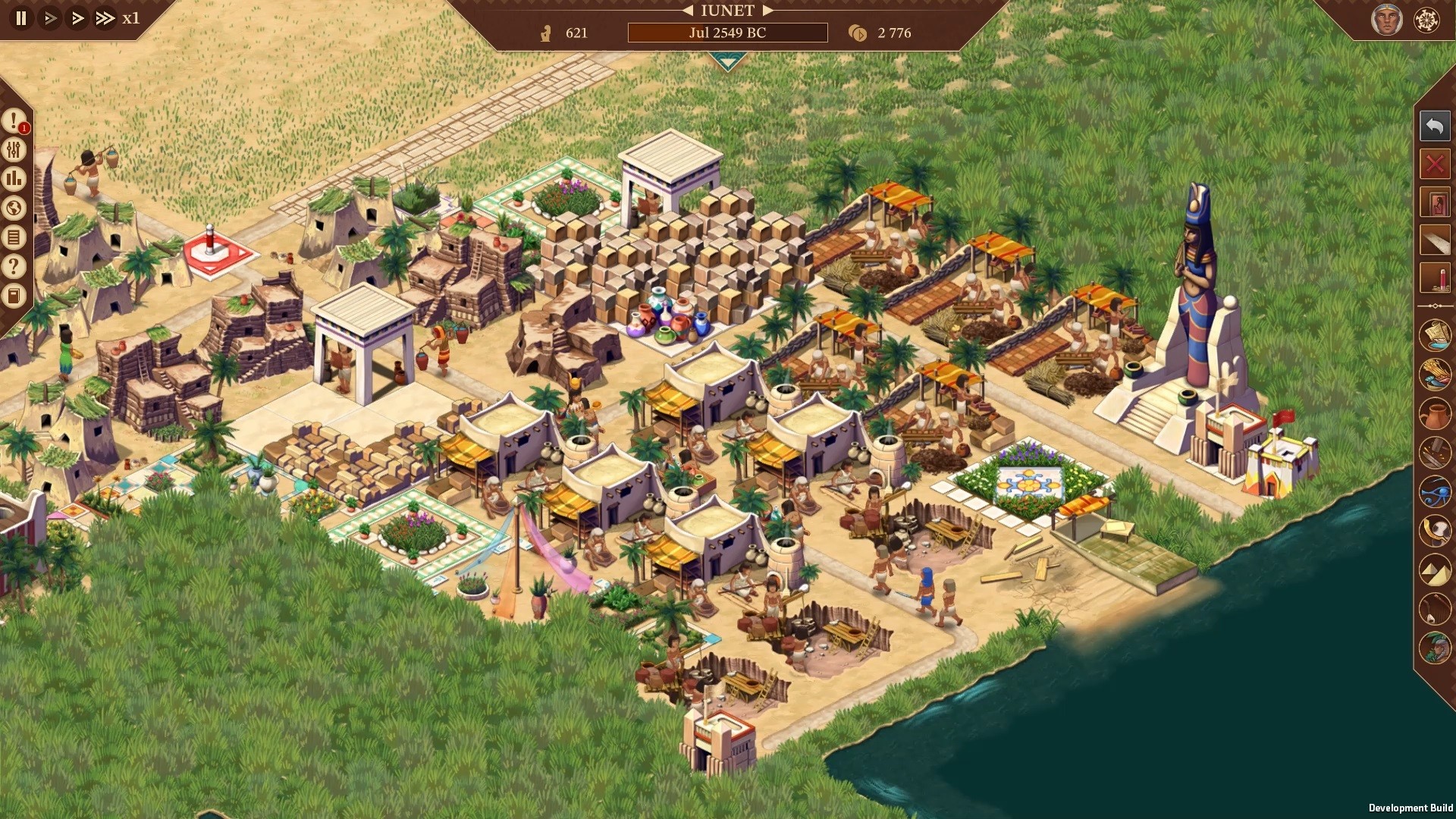
Recent years, however, have been kind to all categories of the strategy genre and plenty of older titles have seen renewed interest thanks to remasters and full remakes. Now, it’s Pharaoh‘s turn and it’s pretty damn great all around.
To be entirely honest, I never played the original game. Hell, my family didn’t even have a computer when it initially released (or for several years after). Even so, I’m a sucker for city-builders and strategy games, so have been eager to see what all the hubbub is about.

Walk Like an Egyptian
Right off the bat, I love the art style they go with for A New Era. It’s all hand-drawn, which gives the overall game a cartoony-feel; though not in a bad way. By going with this style rather than just upgrading the sprites and recreating them in a more realistic way, every mission feels a bit more…dynamic. It’s a graphical style that lends itself to more vibrant colors, giving the Egyptian landscape a certain pop to it as you’re playing. It’s even better as the remake team relied on Egyptologists to ensure historical accuracy in the designs used for everything.
A New Era offers players a couple different play options. There’s the campaign mode, which features more than 50 missions (including those from the Cleopatra expansion), as well as a “Free Build” mode. Free build is pretty much your sandbox mode where you can pick a map/time period and go hog wild with all your governing skills. There are no real win conditions and you’re able to play to your heart’s content.
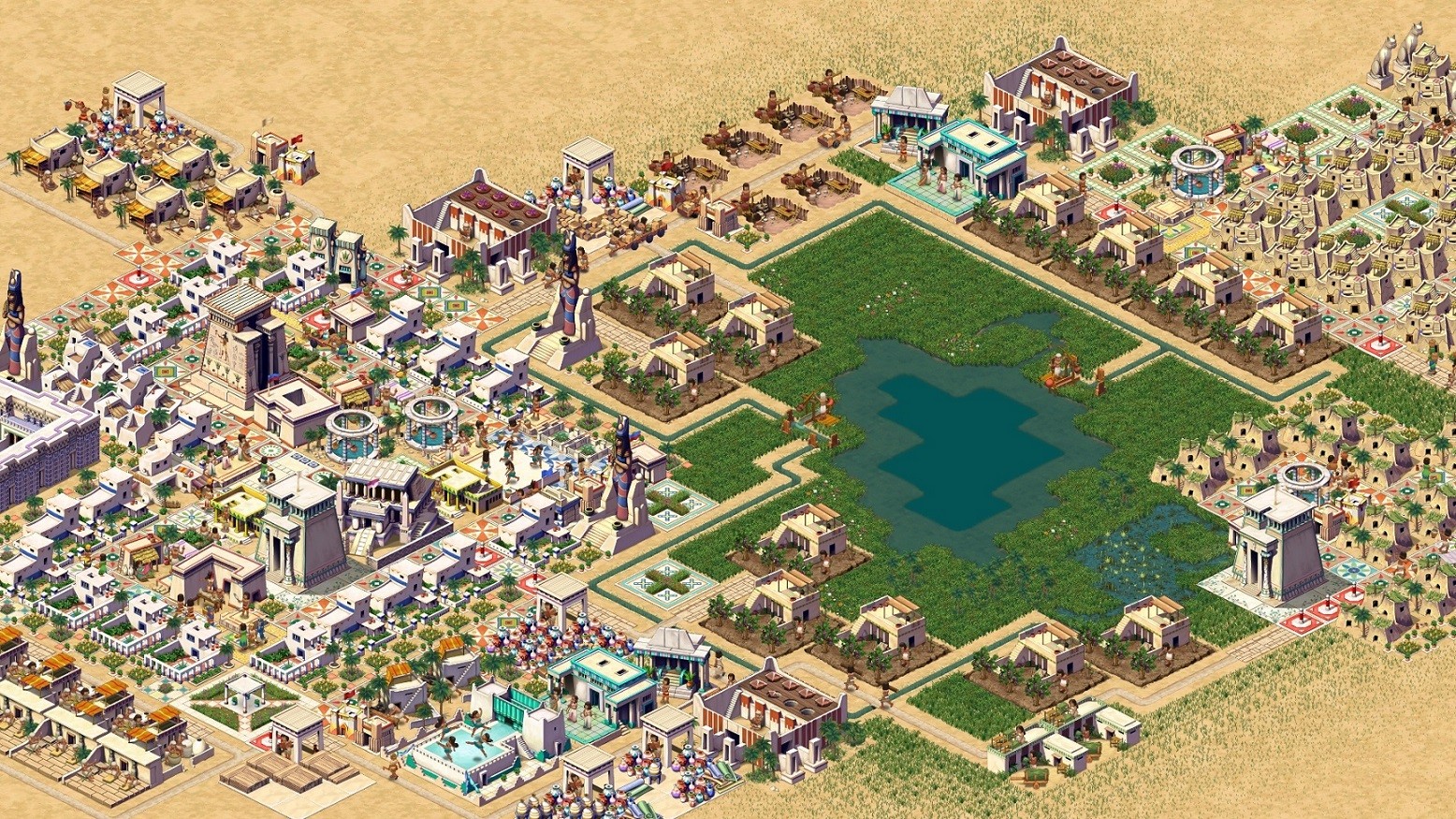
Campaign mode is where I spent the majority of my playtime, however, and if you’re new to the game (or the genre in general), this is where you’ll want to start off. The Campaign spans several thousands years of Egyptian history, and is punctuated at multiple points with real historical events and leaders.
You’ll start off humbly enough in the Predynastic period, as one of the first groups to build up in the area. You’ll then take your family line through six different eras (all the way through the great Pyramids and Cleopatra’s reign), and see your cities come up from simple shacks and loose structure, to a thriving empire complete with trade routes, military dominance, and sprawling monuments. There’s a lot going on in any mission, and keeping up with it all is where the fun comes into play.
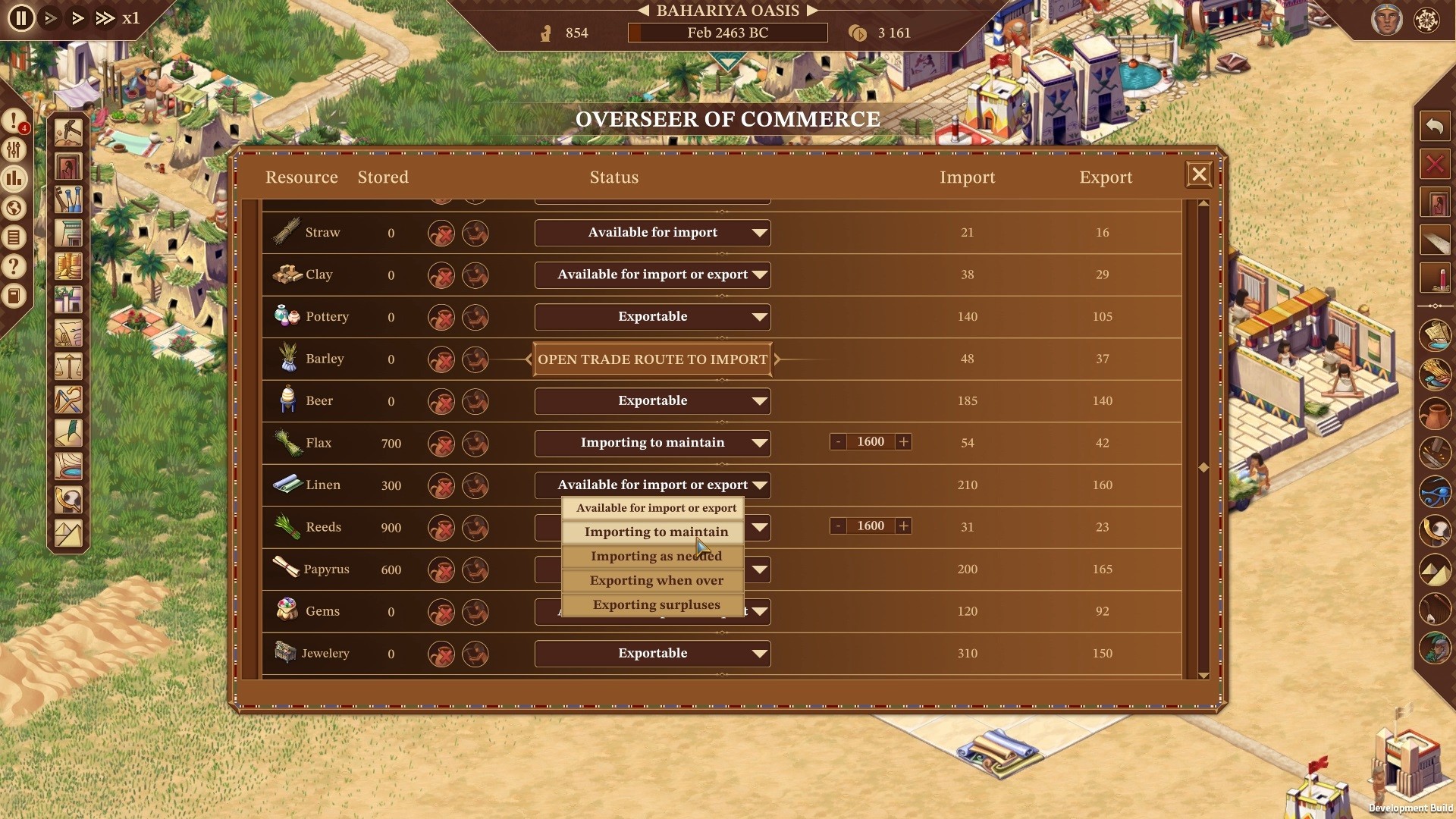
Managing the Basics
Here’s the thing, Pharaoh: A New Era is 100% city-builder. It’s not the same kinda of macro-strategy games where you build up the city, control the general flow of things, while also handling conflict in RTS-esque battles. It’s strictly about building the city and takes the micro-managing to a ridiculous level.
As you go through the campaigns and find yourself in more prominent eras of progress, you’ll find no shortage of things you’ll have to keep track of. You’ll be wearing many hats, and will have to keep an eye on both the people you’re governing, the relationships with allies/enemies in the area, and even making sure the gods aren’t displeased with you.
Each of these elements come with their own set of issues. I won’t go into ALL of them here (that’s part of the fun!), but here’s a good example of some of the scenarios you might find yourself facing:

To grow your city, you need to grow your population, which means building plenty of housing (which has to be city road accessible AND near a water source). As you begin attracting settlers, you’ll then need to find a way to keep them fed and busy. Building out hunting lodges provides food and jobs, while the local Bazar ensures your people have a place to buy what they need. Then you gotta make sure they’re safe, as any number of natural disaster can affect your city. Firefighters, architects, and even a police force are needed to ensure your villagers are protected and able to survive whenever a disaster might strike.
Then you gotta worry about keeping your people happy. Happy people are less likely to cause problems, so you need to build various entertainment options. But of course, you can’t neglect the basics like gold mining and lumber gathering, which requires more jobs and more people. Oh! And you can’t have all these people without ensuring your patron diety is being properly worshipped. Seriously, the amount of temples and shrines have to correlate to the size of your population. If you’re not giving the gods enough attention, they can turn wrathful and unleash literal plagues.
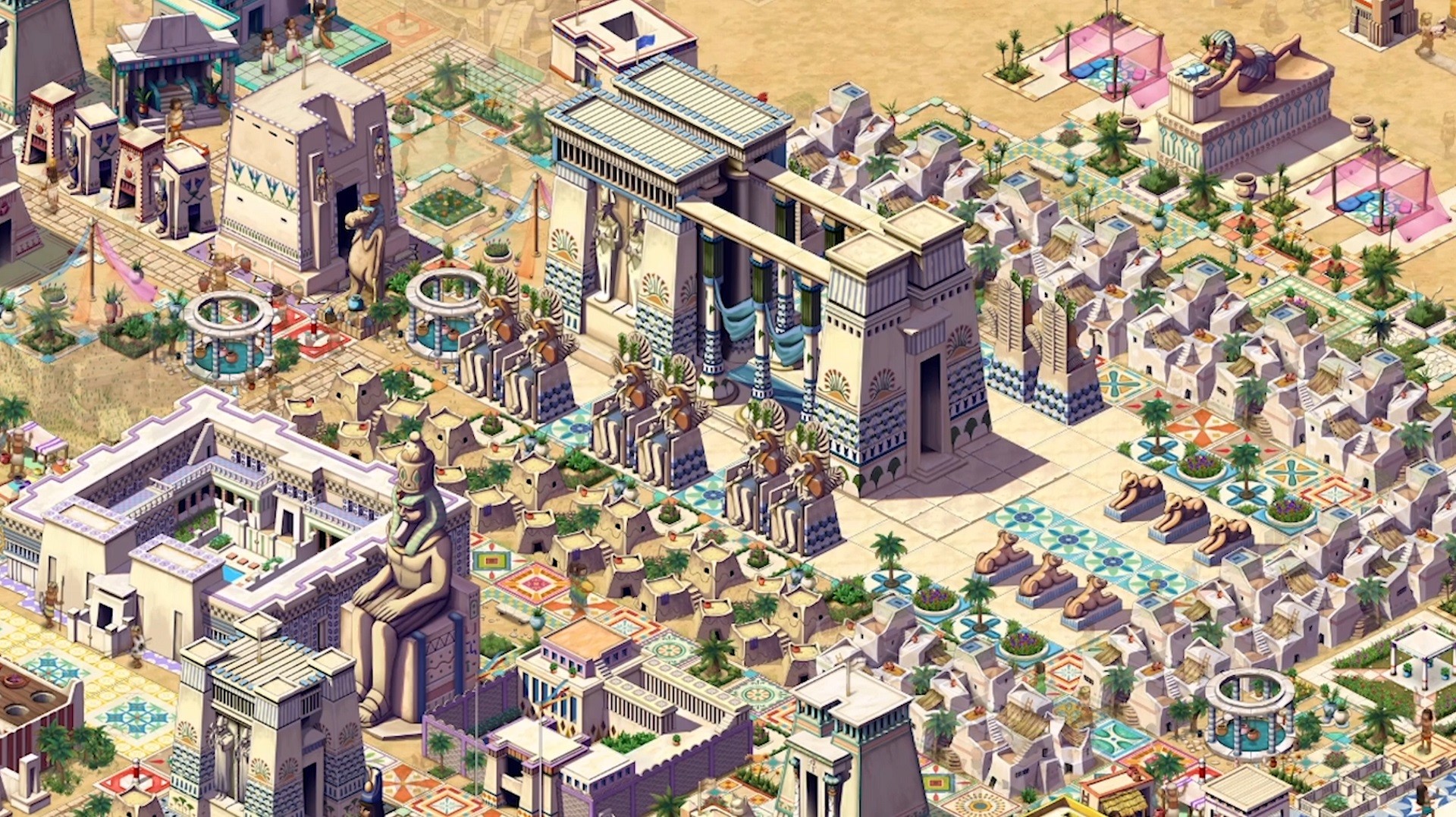
Modern Touches
And that’s just the stuff to focus on regarding your people! That’s not including the bits about maintaining a functioning government, trading with other cities, and establishing some sort of military control. Like I said, it’s a lot, but I think the introductory section of the campaign does an excellent job of easing you into all the various functions and features. It doesn’t feel overwhelming and by the time you’re having to worry about all those things at once, you’ve got a solid handle on it all.
A big reason why it’s not as difficult to manage as it sounds, is due to the game’s user-interface (UI). The developers have completely overhauled the UI to give it a modern feel, with all the quality of life functions modern city-builder gamers have come to expect from the genre. Again, I never played the original, so I can’t say anything specific about the upgrades, but I will say it feels smooth as silk.
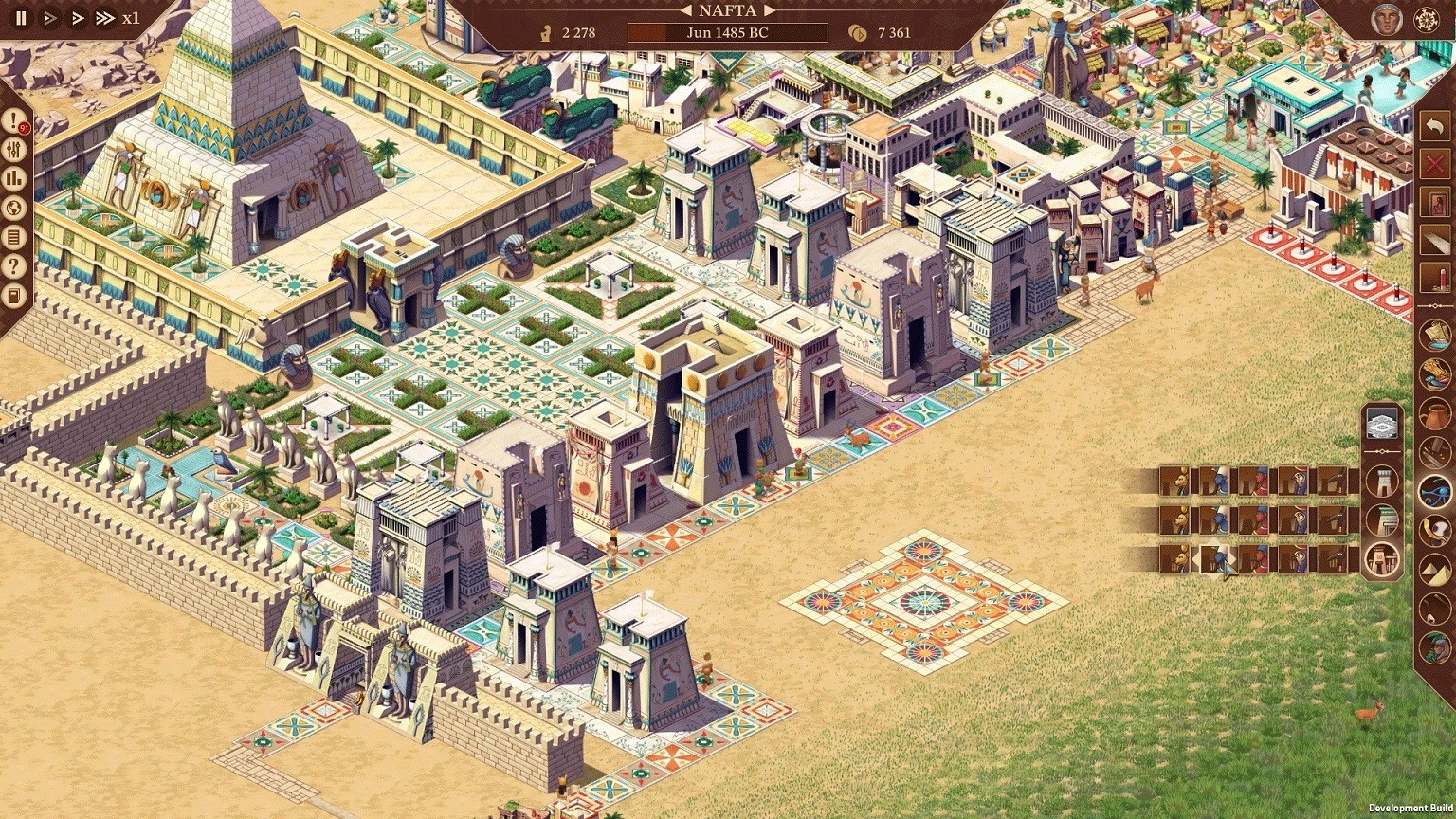
I play a lot of strategy games, so I’m familiar with all manner of complicated UIs. With A New Era, however, everything feels streamlined and easy to understand. Locating the thing you need to build, or even the overlay to monitor certain aspects, is easy and intuitive. So even if you play for a while and then have to take a break for a bit (life happens people), you can come back to your campaign and not feel like you have to re-learn the controls/systems all over again.
Between the visual style and gameplay upgrades, A New Era really plays like a modern strategy title. Because it mostly focused on updating the already established systems, it also feels incredibly refined/polished. This may, or may not, be a good thing for some players, however.
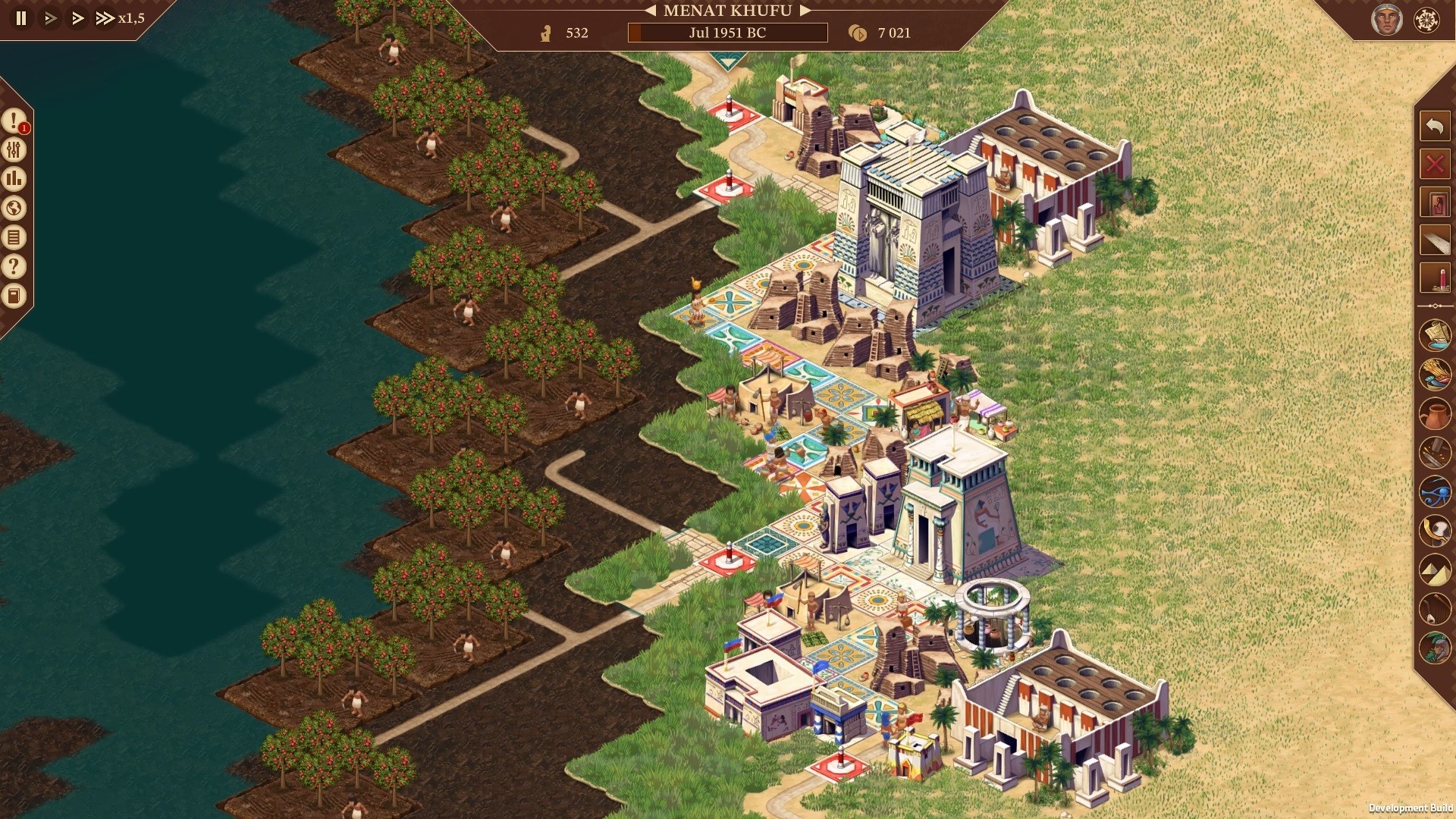
As much as the modern elements add to the gameplay, this is still very much a game rooted in the early 2000s. It plays like a modern title, but might be a bit too simple for players used to more recently released management titles. Don’t get me wrong, there’s obviously tons going on, but with only a couple game modes, and a relatively simple interface to adjust options, there are moments where the game feels like a retro title.
Personally, I’m all for it (much like how the Command & Conquer remakes were done), but that might not be what every gamer is looking for. If you’re looking for a fun game to play, and something you never had the chance to before, there’s plenty of fun to be had with Pharaoh: A New Era.

